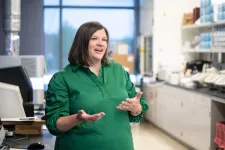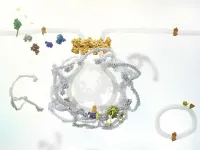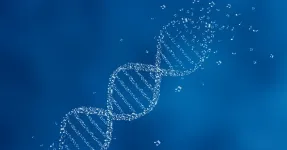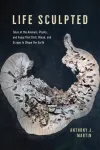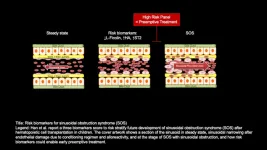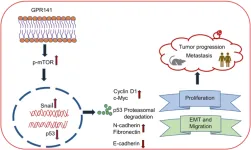Allowing financial trading in California’s wholesale electricity market significantly reduced volatility of prices, electricity production costs, carbon emissions
2023-05-22
Forward markets—over-the-counter marketplaces that set the price of a financial instrument or asset—are used to trade a variety of instruments, including securities and commodities. In a new study, researchers measured the extent to which forward prices and spot prices (the current market price at which a given asset can be bought or sold for immediate delivery) agreed in markets with transaction costs in California, studying time periods before and after the state introduced financial trading ...
Unpacking consumer research: identifying trends, emerging topics, and key insights
2023-05-22
Researchers from Newcastle Business School, The University of Newcastle, and UNSW Business School, University of New South Wales, published a new paper in the Journal of Consumer Psychology that provides a comprehensive review of consumer research journals from both marketing and non-marketing disciplines.
By identifying gaps in the literature, the paper offers guidance for those seeking to further progress consumer research.
The article, recently published in the Journal of Consumer Psychology, “’Inside’ ...
Why consumers forgo front-row seats: Sacrificing experience quality for togetherness
2023-05-22
Researchers from, Texas A&M University’s Mays Business School, Harvard University’s Harvard Business School, and University of Maryland’s Robert H. Smith School of Business, published a new paper in the Journal of Consumer Psychology that provides novel insights about how consumers make trade-offs between experience quality and togetherness.
The paper offers sheds new light on the choices people make when presented with the option of improving an activity separately (with first-class airline tickets, for ...
How intermittent feedback drives consumer impatience
2023-05-22
Researchers from Fudan University’s School of Management published a new paper in the Journal of Consumer Psychology that provides original insights about the impact different types of feedback consumers have on consumers’ psychological state.
Specifically, the research examines “piecemeal” feedback informing consumers of their progress or performance during each step of an online process such as making a purchase, playing a computer game, or customizing a product. The work compares intermittent feedback with “lump sum” feedback offered at the end of a ...
Study points out errors in illustrations of one of the most famous scientific experiments
2023-05-22
Illustrations of scientific experiments play a fundamental role in both science education and the dissemination of scientific knowledge to the general public. Confirming the adage that “a picture is worth a thousand words,” these depictions of famous experiments remain in the minds of those who study them and become definitive versions of the scientific process. Archimedes in the bath discovering the law of buoyancy; Newton refracting sunlight with a prism and defining the principles of modern optics; Mendel cultivating peas and laying the foundations of genetics – these are just a few well-known ...
For urban children with asthma, where they live is strongest predictor of exacerbations
2023-05-22
ATS 2023, Washington, DC – For children with asthma residing in urban areas, the neighborhood they live in is a stronger predictor of whether they will have exacerbations (asthma attacks) than their family’s income or their parents’ level of educational attainment, according to research published at the ATS 2023 International Conference.
“Research has shown that social determinants of health underlie significant health disparities among children with asthma,” said the study’s corresponding author Emily Skeen, MD, pediatric pulmonary fellow, University of Colorado at Children’s Hospital Colorado, Aurora. ...
Public aware of and accept use of bacteria-killing viruses as alternative to antibiotics, study shows
2023-05-22
The public are in favour of the development of bacteria-killing viruses as an alternative to antibiotics – and more efforts to educate will make them significantly more likely to use the treatment, a new study shows.
The antimicrobial resistance (AMR) crisis means previously treatable infections can kill. This has revitalised the development of antibiotic alternatives, such as phage therapy, which was first explored over a century ago but abandoned in many countries in favour of antibiotics.
The study shows public acceptance of phage therapy is already ...
How a drought affects trees depends on what’s been holding them back
2023-05-22
(Santa Barbara, Calif.) — Droughts can be good for trees. Certain trees, that is.
Contrary to expectation, sometimes a record-breaking drought can increase tree growth. Why and where this happens is the subject of a new paper in Global Change Biology.
A team of scientists led by Joan Dudney at UC Santa Barbara examined the drought response of endangered whitebark pine over the past century. They found that in cold, harsh environments — often at high altitudes and latitudes — drought ...
RIT and URMC researchers study maternal nutrition and oral health for clues to childhood tooth decay
2023-05-22
Researchers from Rochester Institute of Technology and the University of Rochester Medical Center are taking a closer look at nutritional factors during pregnancy and in infancy associated with severe tooth decay in young children.
Brenda Abu, assistant professor in RIT’s Wegmans School of Health and Nutrition and a researcher in maternal and child health, is collaborating on a study to investigate the Oral Microbiome in Early Infancy (OMEI) and Nutrition. Perinatal oral health expert Dr. Jin Xiao, associate professor at the Eastman Institute for Oral Health, is leading a large project funded by the National ...
Two small businesses added to Sandia National Laboratories’ Mentor-Protégé program
2023-05-22
ALBUQUERQUE, N.M. — Sandia National Laboratories grew its Mentor-Protégé program from three companies to five with the addition of Dynamic Structures and Materials, LLC of Franklin, Tennessee, and Compunetics Inc., of Monroeville, Pennsylvania. The program not only helps small businesses develop and grow, but also helps foster long-term relationships that help Sandia achieve its mission.
As one of 17 DOE national laboratories, Sandia’s mission includes: anticipating and resolving emerging national security challenges and innovating and ...
Scientists at Wake Forest University School of Medicine discover metabolic sensor may play role in Alzheimer’s disease
2023-05-22
WINSTON-SALEM, N.C. – May 22, 2023 – It’s well-known that people with Type 2 diabetes are at an increased risk of developing Alzheimer’s disease, but the reason why isn’t fully understood and is an area of current research.
Now, scientists at Wake Forest University School of Medicine have uncovered a novel mechanism that shows increased sugar intake and elevations in blood glucose are sufficient to cause amyloid plaque buildup in the brain, which increases the risk of Alzheimer’s disease. Amyloid plaque is made up of toxic proteins in the brain.
The study findings appear online ...
Early Frontier users seize exascale advantage, grapple with grand scientific challenges
2023-05-22
With the world’s first exascale supercomputing system now open to full user operations, research teams are harnessing Frontier’s power and speed to tackle some of the most challenging problems in modern science.
The HPE Cray EX system at the Department of Energy’s Oak Ridge National Laboratory debuted in May 2022 as the fastest computer on the planet and first machine to break the exascale barrier at 1.1 exaflops, or 1.1 quintillion calculations per second. That’s more calculations per second than every human on Earth could perform in four years.
Frontier ...
Researchers modify drug to enter cells and treat pain
2023-05-22
Altering the chemical properties of an anti-nausea drug enables it to enter an interior compartment of the cell and provide long-lasting pain relief, according to a new study led by researchers at NYU College of Dentistry’s Pain Research Center.
The study, published in the Proceedings of the National Academy of Sciences (PNAS), illustrates how pain signaling occurs inside cells rather than at the surface, highlighting the need for drugs that can reach receptors within cells.
G protein-coupled receptors (GPCRs) are a large ...
Ozone treaty is delaying first ice-free Arctic summer
2023-05-22
A 1987 global deal to protect the ozone layer is delaying the first ice-free Arctic summer by up to 15 years, new research shows.
The Montreal Protocol – the first treaty to be ratified by every United Nations country – regulates nearly 100 man-made chemicals called ozone-depleting substances (ODSs).
While the main aim was to preserve the ozone layer, ODSs are also potent greenhouse gases, so the deal has slowed global warming.
The new study shows the effects of this include delaying the first ice-free ...
Montreal protocol is delaying first ice-free Arctic summer
2023-05-22
New York, NY—May 22, 2023—When scientists discovered a hole over Antarctica in 1985, countries across the globe got together and wrote a treaty designed to protect the ozone layer, which shields the Earth--and us--from harmful levels of ultraviolet radiation. The resulting Montreal Protocol, the only United Nations treaty ratified by every country in the world, was signed in 1987 and entered into effect in 1989, when little was known about its impact on the global climate. Its purpose was to reduce atmospheric concentrations of ozone-depleting substances (ODSs), materials ...
Targeting Phage Therapy World Congress will bring Phage Therapy up to another level with more than 70 communications
2023-05-22
The 6th World Congress on Targeting Phage Therapy 2023, being held on June 1-2 in Paris, will include more than 70 communications highlighting the most recent advances in phage and phage therapy.
150+ attendees will gather to discuss the future potential of phage therapy. The most strategic question to discuss is: “how to bring phage therapy up to a new level?”.
Targeting Phages 2023 will address how phages play a strategic role to combat infection and antibiotic resistance. A special session ...
A brand new, shiny CAR design
2023-05-22
Immunotherapy is rapidly becoming a well-founded form of cancer treatment as it employs and strengthens a patient’s immune system to attack tumors.
Chimeric antigen receptor (CAR) T cells – genetically altered T cells used in immunotherapy that can locate and destroy cancer cells – show great promise. Yet they still struggle in broader applications, particularly in attacking non-tumor cells and persistence in killing tumor cells.
Natasa Miskov-Zivanov, principal investigator and assistant professor of electrical and computer engineering at the University of Pittsburgh Swanson School of Engineering, received a $299,986 EAGER ...
A new map reveals the complicated world in which cells seek to repair damaged DNA
2023-05-22
Writing in the May 22, 2023 issue of Cell Systems, a diverse team of scientists, led by researchers at University of California San Diego School of Medicine, have produced a novel map that depicts the human body’s enormously complicated and highly evolved system for addressing and repairing DNA damage — a cause and consequence of many diseases.
Damage to DNA and replication errors caused by stress and other factors play a major role in disease, and are a hallmark of cancer and other afflictions. To maintain the ...
What constitutes a paradigm shift? An olive shrub’s mating system as a case study of Kuhn’s theory
2023-05-22
Philosopher Thomas Kuhn’s influential theory of how scientific knowledge is built introduced the term “paradigm shift” to explain a transformation of a field’s ideas and methods. “A Paradigm Shift, or a Paradigm Adjustment? The Evolution of the Oleaceae Mating System as a Small-Scale Kuhnian Case Study,” a new paper published in The Quarterly Review of Biology, seeks to apply this analytical framework to a small controversy in population biology: the mating system of the shrub Phillyrea angustifolia.
Traditional theory states that the sex ratio of a population should be 1:1 male to female (or ...
New book eyes Earth's excavators, from microbes to elephants and dinosaurs
2023-05-22
The ordinary person looks at Georgia’s Stone Mountain and sees a solid, unmovable monolith. Emory University paleontologist Anthony Martin, who thinks in geologic time, sees something more akin to a giant sugar cube.
Ever since the crystalized mass of igneous-born minerals rose from deep underground, pushed by the upwelling of magma that formed the Blue Ridge Mountains around 350 million years ago, the giant rock’s flanks have faced continuous assault — and not just from weather and water.
Stone Mountain “is fighting a battle against life, and life is winning,” Martin writes ...
Does hydrocortisone improve treatment of septic shock?
2023-05-22
Sepsis is a global health priority affecting 55 million patients worldwide and causing 11 million deaths annually. Treatment for sepsis may include prompt recognition, source control, antibiotics, fluids, vasopressors, and adjunctive therapies. Corticosteroids have been evaluated as adjunctive therapy for septic shock for more than 50 years. Despite this substantive body of research, uncertainty persists about the effects of corticosteroids on mortality.
In a study publishing May 22, 2023 in the New England Journal of Medicine: ...
Risk biomarkers could predict serious side effect of stem cell transplant
2023-05-22
Doctors are one step closer to having a risk biomarker to alert them to which of their pediatric stem cell transplant patients are likely to experience a potentially deadly side effect called sinusoidal obstruction syndrome (SOS).
A team led by MUSC Hollings Cancer Center researcher Sophie Paczesny, M.D., Ph.D., published the results of its biomarker study in JCI Insight this month.
There is a drug, defibrotide, approved to treat SOS. Paczesny hopes the results of the biomarker study will encourage defibrotide’s manufacturer to conduct a multicenter clinical trial testing ...
First Contact: Global team simulates message from extraterrestrial intelligence to Earth
2023-05-22
First Contact: Global team simulates message from extraterrestrial intelligence to Earth
A Sign in Space imagines how Earth might respond to a signal from aliens and invites the public to help decode an ET message.
May 22, 2023, Mountain View, CA – What would happen if we received a message from an extraterrestrial civilization? Daniela de Paulis, an established interdisciplinary artist and licensed radio operator who currently serves as Artist in Residence at the SETI Institute and the Green Bank Observatory, has brought ...
GPR141 regulates breast cancer progression via oncogenic mediators and the p-mTOR/p53 axis
2023-05-22
“This research uncovers GPR141 as a stimulator of breast tumorigenesis and metastasis, making it a candidate target for breast cancer therapeutics.”
BUFFALO, NY- May 22, 2023 – A new research paper was published in Oncotarget's Volume 14 on May 19, 2023, entitled, “G-protein-coupled receptor 141 mediates breast cancer proliferation and metastasis by regulating oncogenic mediators and the p-mTOR/p53 axis.”
Breast cancer morbidity is surging towards the peak in females across the globe. An inherent property of cancer cells is enhanced cell proliferation rate and migration capability, leading to deregulated cell ...
Study highlights long-term benefits of family-based care following institutional care
2023-05-22
SAN FRANCISCO, May 22, 2023 – New research, published online today in the American Journal of Psychiatry, provides the most robust and comprehensive evidence to date that children exposed to early psychosocial deprivation benefit substantially from family-based care. Senior author Kathryn L. Humphreys, Ph.D., discussed this work today at a special briefing during the 2023 Annual Meeting of the American Psychiatric Association.
Results of research from the Bucharest Early Intervention Project, the ...
[1] ... [1900]
[1901]
[1902]
[1903]
[1904]
[1905]
[1906]
[1907]
1908
[1909]
[1910]
[1911]
[1912]
[1913]
[1914]
[1915]
[1916]
... [8821]
Press-News.org - Free Press Release Distribution service.




